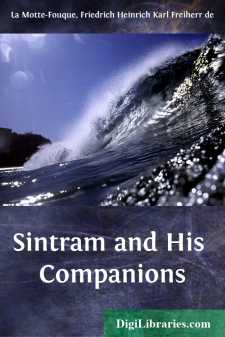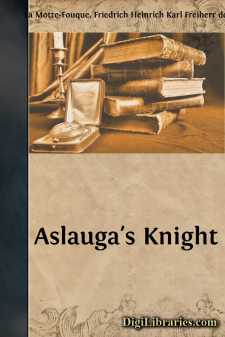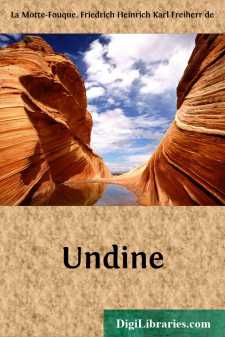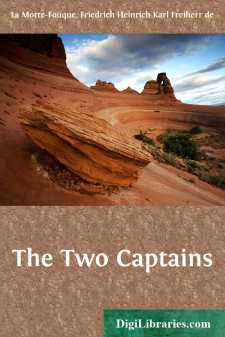Categories
- Antiques & Collectibles 13
- Architecture 36
- Art 48
- Bibles 22
- Biography & Autobiography 813
- Body, Mind & Spirit 142
- Business & Economics 28
- Children's Books 14
- Children's Fiction 11
- Computers 4
- Cooking 94
- Crafts & Hobbies 4
- Drama 346
- Education 46
- Family & Relationships 57
- Fiction 11829
- Games 19
- Gardening 17
- Health & Fitness 34
- History 1377
- House & Home 1
- Humor 147
- Juvenile Fiction 1873
- Juvenile Nonfiction 202
- Language Arts & Disciplines 88
- Law 16
- Literary Collections 686
- Literary Criticism 179
- Mathematics 13
- Medical 41
- Music 40
- Nature 179
- Non-Classifiable 1768
- Performing Arts 7
- Periodicals 1453
- Philosophy 64
- Photography 2
- Poetry 896
- Political Science 203
- Psychology 42
- Reference 154
- Religion 513
- Science 126
- Self-Help 84
- Social Science 81
- Sports & Recreation 34
- Study Aids 3
- Technology & Engineering 59
- Transportation 23
- Travel 463
- True Crime 29
Sintram and His Companions
Description:
Excerpt
Introduction
Four tales are, it is said, intended by the Author to be appropriate to the Four Seasons: the stern, grave "Sintram", to winter; the tearful, smiling, fresh "Undine", to Spring; the torrid deserts of the "Two Captains", to summer; and the sunset gold of "Aslauga's Knight", to autumn. Of these two are before us.
The author of these tales, as well as of many more, was Friedrich, Baron de la Motte Fouque, one of the foremost of the minstrels or tale-tellers of the realm of spiritual chivalry—the realm whither Arthur's knights departed when they "took the Sancgreal's holy quest,"—whence Spenser's Red Cross knight and his fellows came forth on their adventures, and in which the Knight of la Mancha believed, and endeavoured to exist.
La Motte Fouque derived his name and his title from the French Huguenot ancestry, who had fled on the Revocation of the Edict of Nantes. His Christian name was taken from his godfather, Frederick the Great, of whom his father was a faithful friend, without compromising his religious principles and practice. Friedrich was born at Brandenburg on February 12, 1777, was educated by good parents at home, served in the Prussian army through disaster and success, took an enthusiastic part in the rising of his country against Napoleon, inditing as many battle-songs as Korner. When victory was achieved, he dedicated his sword in the church of Neunhausen where his estate lay. He lived there, with his beloved wife and his imagination, till his death in 1843.
And all the time life was to him a poet's dream. He lived in a continual glamour of spiritual romance, bathing everything, from the old deities of the Valhalla down to the champions of German liberation, in an ideal glow of purity and nobleness, earnestly Christian throughout, even in his dealings with Northern mythology, for he saw Christ unconsciously shown in Baldur, and Satan in Loki.
Thus he lived, felt, and believed what he wrote, and though his dramas and poems do not rise above fair mediocrity, and the great number of his prose stories are injured by a certain monotony, the charm of them is in their elevation of sentiment and the earnest faith pervading all. His knights might be Sir Galahad—
"My strength is as the strength of ten,
Because my heart is pure."
Evil comes to them as something to be conquered, generally as a form of magic enchantment, and his "wondrous fair maidens" are worthy of them. Yet there is adventure enough to afford much pleasure, and often we have a touch of true genius, which has given actual ideas to the world, and precious ones.
This genius is especially traceable in his two masterpieces, Sintram and Undine. Sintram was inspired by Albert Durer's engraving of the "Knight of Death," of which we give a presentation. It was sent to Fouque by his friend Edward Hitzig, with a request that he would compose a ballad on it. The date of the engraving is 1513, and we quote the description given by the late Rev. R. St. John Tyrwhitt, showing how differently it may be read.
...





